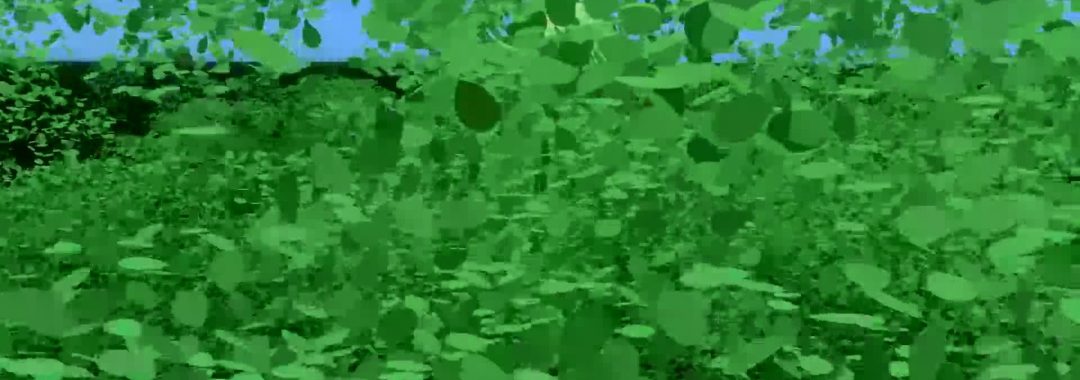Environments can seem to be everywhere and nowhere. They are configured as surroundings and relations, object and process, distant and intimate. Definitional projects of identifying environments are often described as insufficient, or as exclusionary and divisive. Environments could seem to be an artefact conjured by those modest witnesses who distance and abstract planetary life through the workings of a detached and managerial mind. In response, numerous projects attempt to knit together and recast the damaging binaries of the social and the natural, the human and the more than human.
Yet what if environments are not an external separate object to be known, but rather are the very processes and conditions through which subjects materialize? Here, environments are not static containers that distinct versions of humans come to know and fix as objects of knowledge. Rather, they are dynamic and interdependent webs of relations and non-relations, sensation and experience, and which are articulated across humans, organisms, technologies, and collectives. In a time of planetary transformation and climate crisis, this re-articulation of environments offers a way to engage with and consider the multiple entities that make existence possible.
Humans, in this re-articulation, do not form as entities that would know and operate on environments. Rather, they are made with and through environments of experience and reciprocity. These environments require attention to the practices that make and sustain, as well as destroy, them. These practices are the very means by which different possibilities for subjects also come into being. This is a way to environmentalize subjects and relations. As philosophers, Indigenous writers, and environmental activists note, we are in the world and the world is in us. Lakes, mountains, rivers, and lands are not merely surroundings. They are the constitutive entities with and through which subjects form.
In a lexical entry on environments, it would be impossible not to consider those practices of environmentalism that attempt to respond to environments that are changing and under threat. These practices materialize through the very subjects, environments and relations that create and sustain possibilities for experience and inhabitation. As environmental justice scholars have clearly demonstrated, many of the same strategies of protecting environments can be embroiled with extractivist, unjust, racist and violent colonial relations, impacting on humans who have different relations with their lived environments.
At the same time, those who attend to preserving and conserving environments can often overlook the many polluted, unliveable and unbreathable worlds that are not within designated zones of protection. Rather than fix environments as worlds apart, many Indigenous and environmental justice scholars and practitioners extend the invitation to focus on the mutual constitution of subjects and environments, politics and worlds. Such an approach would galvanize social movements and offer possible transformations toward more liveable environments. When communities, including Water Protectors and forest dwellers, contest pipelines and other extractive projects that would disrupt environments and ways of life, they are demonstrating what liveability means; that we are in the world as the world is in us.
Author: Jennifer Gabrys
References and Further Reading:
Di Chiro, G. (2008). ‘Living Environmentalisms: Coalition Politics, Social Reproduction, and Environmental Justice.’ Environmental Politics 17(2): 276–298.
Gabrys. J. (Forthcoming). Citizens of Worlds: Open-Air Toolkits for Environmental Struggle. Minneapolis: University of Minnesota Press.
Gabrys, J. (2016). Program Earth: Environmental Sensing Technology and the Making of a Computational Planet. Minneapolis: University of Minnesota Press.
Haraway, D. (1997) Modest_Witness@Second_Millennium. FemaleMan©_Meets_Onco-Mouse™. New York: Routledge.
Pulido, L., & De Lara, J. (2018). ‘Reimagining “Justice” in Environmental Justice: Radical
Ecologies, Decolonial Thought, and the Black Radical Tradition. Environment Planning E:
Nature and Space 1 (1–2): 76–98.
Simpson, L. B. (2014). ‘Land as Pedagogy: Nishnaabeg Intelligence and Rebellious
Transformation.’ Decolonization: Indigeneity, Education & Society 3 (3): 1-25.
Stengers, I. (2011 [2002]). Thinking with Whitehead: A Free and Wild Creation of Concepts. Cambridge: Harvard University Press.
Tsing, A. (2018). ’Getting by in Terrifying Times.’ Dialogues in Human Geography 8 (1): 73–76.
Whitehead, A. N. (1985 [1929]). Process and Reality. New York: The Free Press.
Whyte, K. (2018). ‘Settler Colonialism, Ecology, and Environmental Injustice.’ Environment and Society 9, no. 1 (2018): 125-144.
